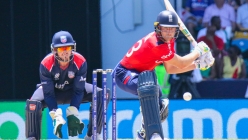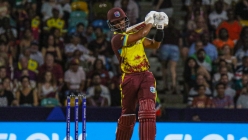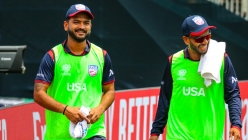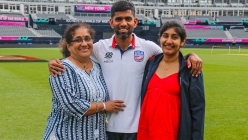Views
ICL - Indian 'Comeback' League?
2008 Sep 29 by DreamCricket
ICL - Indian 'Comeback' League?October 10 will mark the return of the Indian Cricket League - an initiative that was termed as a 'rebel league' for no fault of its own.
S. Martin - DreamCricket.com
October 10 will mark the return of the Indian Cricket League - an initiative that was termed as a 'rebel league' for no fault of its own.
According to the founders of the Indian Cricket League, they had just one aim when they came out with the concept of the ICL - promote and harness young talent in the country; give them a chance to compete with internationals so that they can improve the level and standard of their game. Not one player who signed the dotted line last year had the slightest clue of what the repercussions of his actions were going to be.
A year down the line 'world cricket' seems to have been affected at large, even though it's ruling bodies 'pretend' that all is well. Pakistan seems depleted of their experienced talent only because half their side formed the 'Lahore Badshahs', a team which brought nothing but pride to their country at the ICL.
The Kiwis have lost their 'firepower cop' in Shane Bond and more-than-handy seamer in Daryll Tuffey. The Proteas have lost Johan van der Wath, Andrew Hall and Justin Kemp - all potent contributors on their day. As for Bangladesh - the exodus of 14 of its players may have just crushed whatever little hope the minnows had of redeeming themselves from the huge plight they already find themselves in.
Let's not forget the bountiful and extremely talented pool of Indian players, all struggling it out at the ICL. Even though they will not openly admit it, I can assure you that every Indian at the ICL secretly harbors a dream of playing in their national colours. Ambati Rayudu may just be the middle order batsman that could lend stability to the Indian batting attack after their prolonged inability to convert good starts into awe-inspiring targets. He is just one of the many Indians who will be playing for his team's pride when the new ICL season gets underway in a few days time. Needless to say, all of them would, given the opportunity, any day swap places to please a billion fans of a cricket-crazy nation rather than just a few thousand loyal supporters. Sadly, choice is an option they are not bestowed with at this point in time.
While the BCCI is doing all its in power to stunt the ICL, elsewhere cricket boards are realizing that they need to put their foot down and stand up for what 'they' believe is right.
If the Sri Lankan Cricket Board's stance to allow its ICL players to participate in domestic national tournaments is anything to go by, it may just usher in some winds of change at precisely the right point of time. Arjuna Ranatunga always fought for what he believed in, whether it was shrewd tactics that led his team to world-champions' status in the 1996 World Cup or his full fledged support to teammate Muttiah Muralidaran when he was called for chucking. Has Ranatunga just taken the first steps to ascend the 'rebel' league to a more befitting title, an 'authorized' unofficial league - something it actually is? Has his actions led to the ICC softening its stance with the ICL? Will Subhash Chandra, whose brainchild the ICL was, be able to convince ICC President, David Morgan into de-alienating its players from the worldwide scheme of things when the two meet in a few weeks time?
Comparisons between Kerry Packer's World Series Cricket and the ICL are inevitable. In the late seventies when Packer started the WSC which caused the migration of the then big-names in world cricket, it created mass hysteria and all players who participated in the league were 'banned' from representing their respective nations. Packer's astute organizational abilities led him to learn the game, its requirements and implement it in the best way possible in the second season of World Series Cricket - which, by the way, was a runaway hit and a huge success, far better than its inaugural predecessor. The target audience of women and children flocked to the stadiums to watch day-night ODI matches, which Packer learnt was something that the crowd preferred. Subsequently, television ratings too began to soar.
Is the ICL realizing its faults and coming better prepared this time around? Of course they wouldn't be shelling out Rs.500 million on the 'Cricket Hai Meri Life' marketing and other campaigns if they didn't believe that the league wouldn't deliver in its second coming.
In addition to the ongoing recruitment of some highly talented players, ICL has made some other moves that are sure to entertain the front benchers - they roped in the 'item girl' Rakhi Sawant to head the cheerleading squad. The rules of the game have undergone tweaking and they are making sure that every aspect of the media cashes in on the things they do.
ICL must have learned from the IPL and knowing that they too are very capable of providing edge-of-the-seat slobber knockers, the ICL must secretly be getting ready to drop a bomb on October 10, when the new season gets underway. Realistically they are following a simple Indian instant-success formula - promote the game well enough for audiences to like it at first go and popularity will spread like wild-fire. A simple logic - 'Well begun is half done' - Remember Brendon McCullum's mammoth 158 in the very first IPL game?
Another leaf that Packer's World Series Cricket overturned after its second season was that it bridged the differences between 'banned' players and their boards. Each realized that they were interdependent on one another. Players returned to donning their national colours and ended up retiring as some of the most talented and famous cricketers of their day. They may have played their hearts out at the World Series but at the end of the day, it's their national contributions that make them what they are today.
Ditto with the ICL - Will Sri Lanka's stand set the ball rolling for other boards to follow? What will the talks between Subhash Chandra and David Morgan reveal? Above all, will the players get what they rightfully deserve? A chance to be treated as equals and rightfully vie for a spot in their coveted 'national teams'.
Well, one thing is for sure, we'll never know what transpires till egos are kept aside and powerful men decide to take a brave stand against a severe injustice that is plaguing one of the richest bodies of world cricket (both money-wise and talent-wise). Meanwhile, everyone is waiting to see whether the league's second coming provides better entertainment for crowds, fans and viewers alike.




